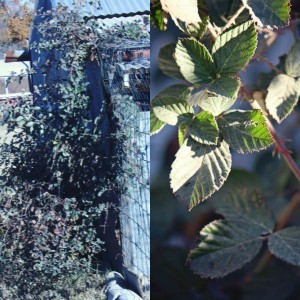
Vertical gardening is a fast-growing trend for gardeners who are trying to maximize their space and it only makes sense to grow as many plants UP as possible.
“By using vertical gardening space, you’ll be able to grow more produce. And you’ll be able to include some of the larger vegetables and melons that you might not think to include in a traditional small home garden.” ~ Backyard Farming on an Acre (More or Less) page 50



